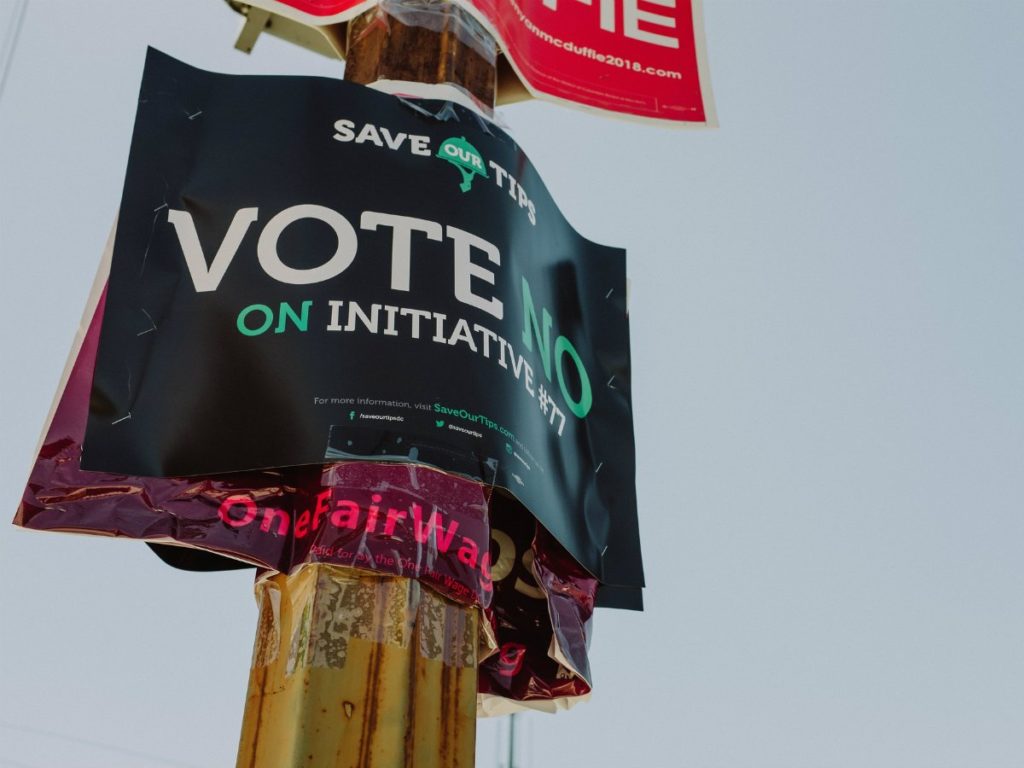Initiative 77 — the “One Fair Wage DC” proposal that would require restaurants and bars to pay all their employees, including those who get tips, a $15-an-hour minimum wage by July 15, 2020 — passed 55 percent to 45 percent in D.C.’s June 19 primary election, which saw a turnout of just 18 percent.
It is The Georgetowner’s opinion that the District Council should exercise its right to void the Initiative 77 vote the week of July 9, the last week that the Council will meet until mid- September. Here’s why.
As passed, the initiative will have a severe negative impact on D.C. restaurants and their tipped employees. Many owners, managers, waiters and bartenders were solidly against the initiative because it would require an increase in prices to cover the additional wage costs, resulting in reduced patronage.
In addition, any surcharge imposed to cover the increased wages would inevitably take away from tips. Many customers are likely to think that, as in Europe, the surcharge makes tipping unnecessary.
In fact, tipped employees make good money in Washington’s thriving hospitality
industry. The disappearance of tips would be a disaster, removing a key incentive for frontline employees to work weekends and to provide outstanding service generally. It would eventually result in D.C.’s loss of top servers and bartenders, since they could easily obtain jobs in nearby Virginia and Maryland — where many already live — and continue to earn tips.
However, the main reason we feel the Council should void the vote is because it was held as part of a primary election, which always draws few voters (usually around 30 percent). Participation in the June 19 primary was particularly weak: only 18 percent of the electorate turned out. Fifty-five percent of those who voted, voted in favor of Initiative 77. In other words, less than 10 percent of the registered voters in Washington, D.C., decided a law that could negatively affect a significant segment of commerce in the District.
The sponsor of Initiative 77 — advocacy organization Restaurant Opportunities Centers United — led an emotional campaign in D.C. as elsewhere. ROC United’s rhetoric included charges that tipped employees, particularly minority women, face sexual harassment by customers in order to earn a living wage through tips. We won’t speculate whether ROC United pushed for the initiative to be on a primary ballot, knowing the lower turnout would mean that fewer voters would have to be persuaded.
What we do know is that for the past two years ROC United has been lobbying for a one- size-fits-all solution, with little attention to the rich diversity of D.C. Certainly, the One Fair Wage campaign is relevant in some communities. But the District of Columbia is different.
The Council members, of all people, should recognize the distinctions of our uniquely prospering city. They are certainly aware, having passed them, that D.C. laws already guarantee tipped employees a minimum wage equal to other employees (if tip income does not reach this level, employers are required to make up the difference).
The Council needs to void Initiative 77, which was voted in by a tiny minority of D.C. voters. There is precedent: A similar vote was just overturned in Maine.


